Table of Contents
Lately, we got many questions about the meaning of carbohydrates after training. Some of you are confused about how to include the carbohydrates into the eating plan. The others are worried that they will gain fat because of them and the growth hormone and testosterone level will decrease. Is it true? Read the article and you will get to know how carbohydrates can help you with the muscle growth and regeneration after training.
Carbohydrates fill up glycogen
The main reason for consumption of carbohydrates after training is the fill up of the muscle glycogen which you have burnt during the training. When you are exercising, your main source of fuel is glycogen in the muscles. Glycogen is the storage form of glucose which is composed of long molecule chains of glucose with many branches.
The break of glucose from glycogen chain is needed because of ATP production, adenosintriphosphat, which serves as the primary source of enery for the cell. It transports chemical energy and is deciding for the muscle contractions. The research confirms that the best way to fill up the muscle glycogen after training, is to receive carbohydrates with high glycemic index as soon as possible. [1] [3]
Some “experts” claim that during the typical training in the gym, you don’t burn so much glycogen to be worried about its fill up. We don’t have any words for that. When you exhaust any amount of muscle glycogen, you should take care about its fill up – mostly when your main goal is muscle growth. If your trainer claims that you don’t have to be interested in glycogen fill up, then his trainings are on the very low level and have weak intensity or he didn’t study anything about this issue. [1] [2]
The research which was watching the use of glycogen during power training showed that exercising which is composed of any series from 6 – 20 and lasts 15 – 30 minutes, impoverishes glycogen level in the muscles approximately in 30 – 40 %. If your trainings last 60 – 90 minutes, you are forced to move fast between exercising or you prefer highly intensive training such as cardio or Tabata, your level of the muscle glycogen is lowered in 60 – 75 %. [2] That’s why you should take your carbohydrate receive seriously and fill up your muscles with storages of glycogen. If you don’t do so, you cheat on your muscles and limit their regeneration. In reality, the research showed that when you delay the carbohydrate consumption in 2 hours, you lower the speed of glycogen fill up in 50 %. [2]
Even some people claim that within the majority of people in the gym nothing of this is applicable because only minum proofs indicate whether you will be consuming carbohydrates immediately after training or in two hours later, the glycogen level will fill up within 24 hours on its own. The proofs about this claim are weak. Because of that, the quickest way to fill up the muscle glycogen is the consumption of highly-glycemic carbohydrates immediately after training.
The immediate fill up the glycogen level is important for muscle growth. If glycogen is stored in the muscle cells, it pulls water into them and by this, the volume of the muscle cell increases and also the fullness of the muscles tissues increases.[9]
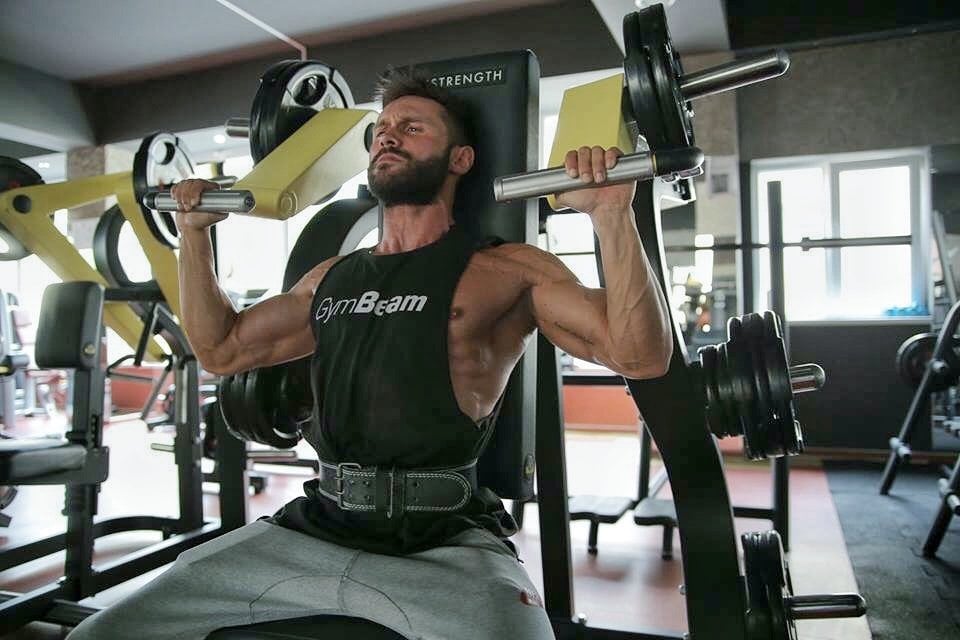
Since you pump up your muscles during training, the amount of water in the muscle cells increases and quick supply of glycogen level can help you to keep bigger volume of the muscle cell for the longer time. This can be important because data shows that bigger volume of the muscle cells incitate changes in the muscle which lead to its long-time growing. [3]
The next benefit of carbohydrate consumption immediately after intensive training, mostly highly glycemic carbohydrates such as dextrose, is that you will feel like newborn. Carbohydrates will help you to get rid of hunger and lethargy after brutal training in order to be energetic and fully filled up. Plus, the consumption of highly glycemic carbohydrates after training usually mitigates big wish for something sweet or for starch carbohydrates without any negative impact on your diet progress. [9]
You might be interested in these products:
What about insulin?
Another benefit of highly glycemic carbohydrates is bit of insulin which they provide. While the insulin is considered as the anabolic hormone, there are more and more debates about its influence on the muscle growth. It was believed that insulin is critical factor for triggering the protein synthesis and reducing muscle damage. Some contemporary researches attribute it to amino acids from protein. [3] [9]
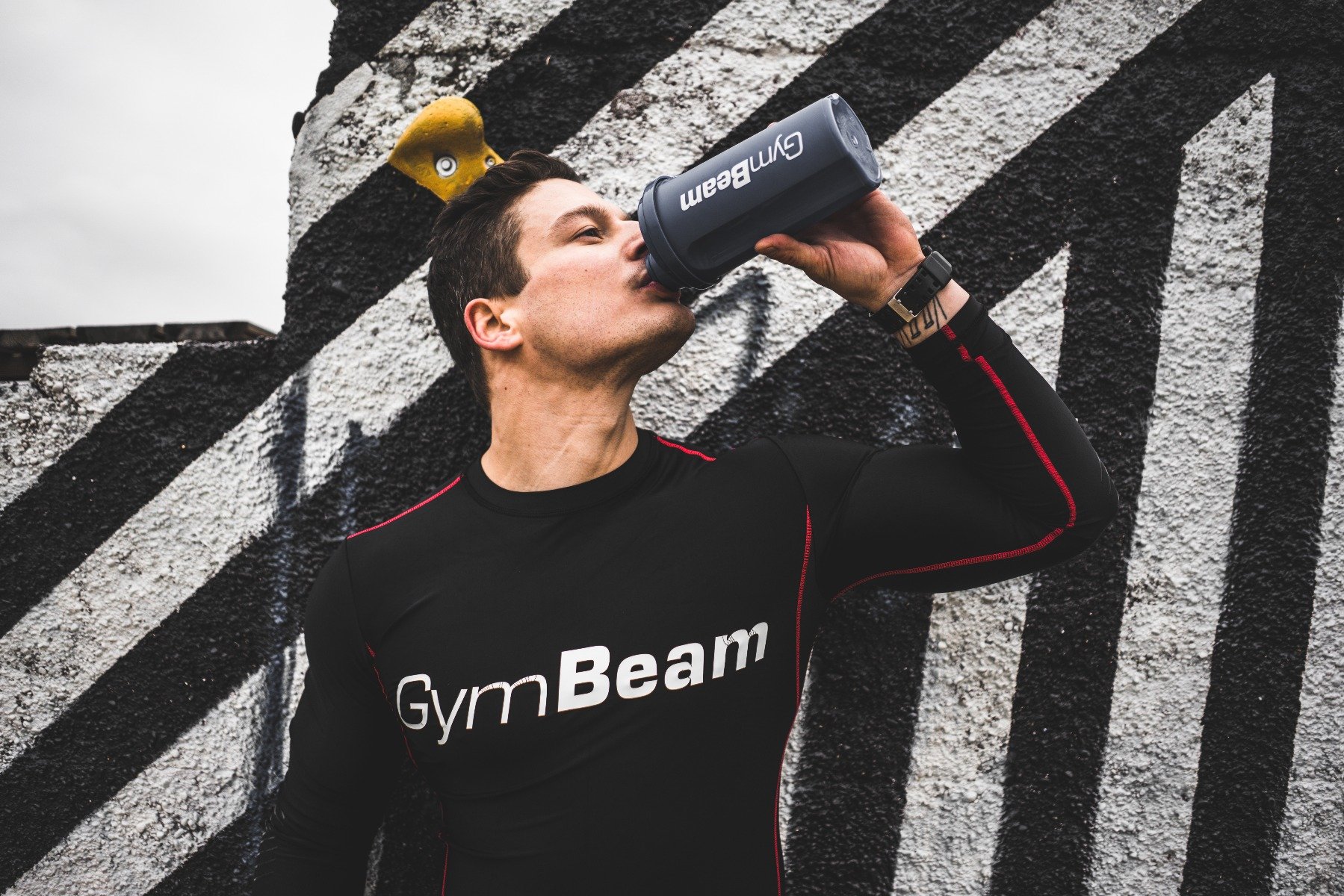
Lately, many researches compared consumption of protein after training with consumption of combination of protein and carbohydrates after training. The research showed that if it concerns protein synthesis, the addition of carbohydrates into protein drink won’t increase the protein synthesis and won’t lower protein breakdown from the muscles no more than single protein drink. [5] [6]
Despite that, insulin is still important immediately after training. It binds to specific receptors on the muscle cells which enables glucose and amino acids and also creatine and carnitine, to be received by muscle cells. According to research, both – creatine and carnitine are highly dependent upon insulin in time when they want to get into muscle cells and to provide them benefits. [11]
If you start to use these supplements after training, you will probably want to maximize isulin level, mostly if the muscle growth is your goal. As we already mentioned, in the period of diet, when you lower the overall carbohydrate receive, including carbohydrates after training, insulin will be provided to your muscles by protein drink and BCAA. [9]

Dextrose as the quickest source of carbohydrates after training
The consumption of pure glucose, known as dextrose, after training, doesn’t need time for digestion. Glucose is absorbed into blood circulation immediately, right after consumption. This way it will get into your muscles very fast and the result is the most quick and full supply of muscle glycogen. This will keep your muscles filled by sufficient amount of glycogen for the next training, it will pull the water into the muscle cells and will maximize your muscle mass. [4]
Try combination of maltodextrin and glucose
Maltodextrin is complex carbohydrates from corn, rice or potato starch but its molecule pattern is shorter than within classic complex carbohydrates. It is composed of freely bound molecules of glucose and similarly as dextrose, maltodextrin is absorbed directly in the intestines. So it has an impact on the increase of sugar level in blood and the insulin level such as dextrose. [13]
The only difference is that maltodextrin has to pass through the liver first where all the bonds among molecules of glucose are broken. This will influence the speed of glycogen fill up which is slower than within dextrose. Because it metabolizes longer, it won’t happen that insulin and sugar in blood will lower so quickly such as within dextrose. Out of this reason, more beneficial choice is the combination of dextrose and maltodextrin after training in proportion 1:1. [13]
Fructose is not quick enough
Sugar fructose which forms 50% of sugar in majority of fruit, honey and saccharose, is in reality low-glycemic carbohydrate. Fructose is a form of sugar which the body can’t use. Regarding its structure, it can’t be directly transformed into the muscle glycogen such as glucose.[4]
If you consume fructose by form of fruit or highly fructose corn syrup, it won’t absorb into your blood circulation as quickly as dextrose. Instead of that, the majority of fructose passes into liver when it can be transformed into glucose and stored as glycogen. This action influences liver according to the need to maintain glucose level in blood. [4]
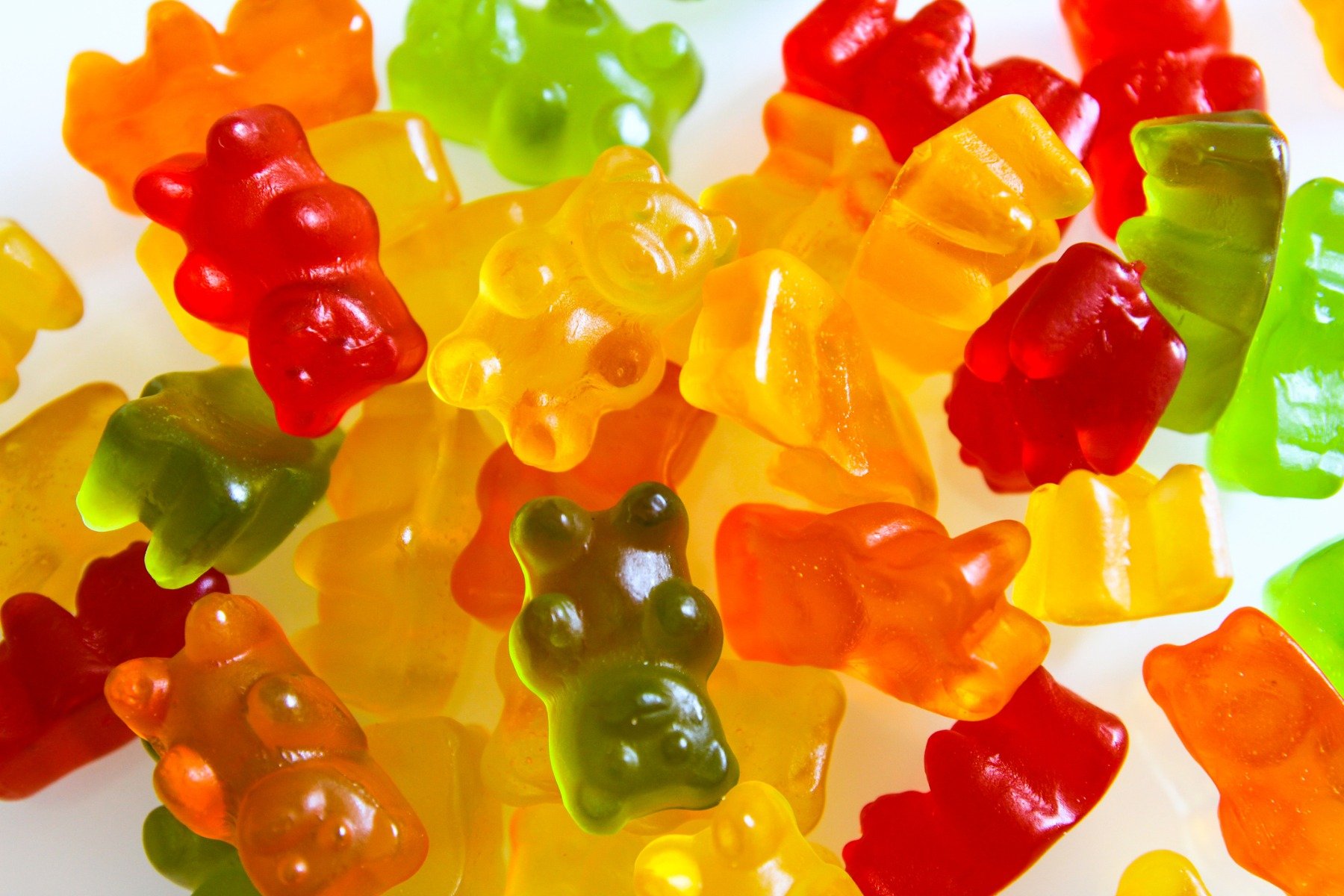
Regarding the fact that glucose won’t optimize the fill up of glycogen in the muscles, it is not ideal choice after training. This is one of the main reasons why instead of fruit or other sweets, gummy bears are recommended. The most of the sweets contains highly fruit – fructose corn syrup or sugar. Table sugar (saccharose) is composed of 50% fructose and 50% glucose, while highly-fructose corn syrup contains 55% of fructose or more. In contrast to this, gummy bears are mostly made of dextrose and corn syrup. Corn syrup is mostly made of glucose and is considerably distinct from falsed highly fructose corn syrup.
No, carbohydrates after training won’t hurt you
Many people think that consumption of carbohydrates after exercising will make them obese, but the time after training is the one when you can be sure that sugar won’t transform into body fat. As long as you completely removed the carbohydrates from your nutrition, don’t risk suboptimal receive by going to carbohydrate consumption after training.
If you are in a diet in order to get rid of the body fat but you receive carbohydrates in meal during the day, the last thing you should do is to skip carbohydrates after training. If you do so, remove carbohydrate receive from the meal during the day and rather consume them immediately after training.
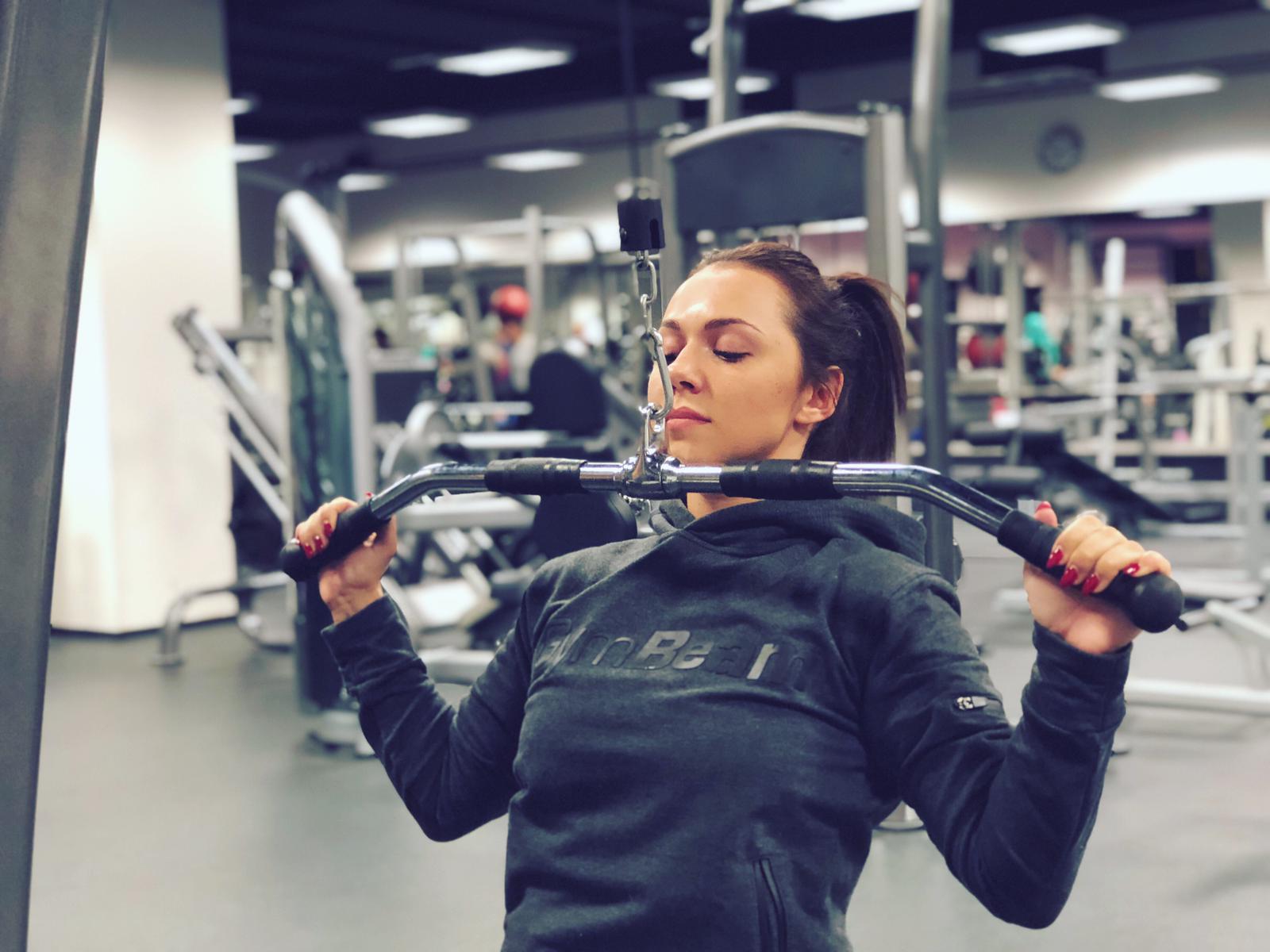
Maybe you are worried about consuming carbohydrates after exercising because you have heard that carbohydrate fill up after training lowers the growth hormone and testosterone level. It is not true. Why? Because the values of the growth hormone and testosterone are the highest during training and consequently after training they quickly stabilize whether you eat something or not. So you can eat after training and stop worrying about rapidly decreasing hormone levels. [8]
Few advice at the end
For maximizing regeneration and muscle growth, it is necessary to consume quick carbohydrates along with protein immediately after exercising. No doubts that this strategy really works. Skipping carbohydrates after exercising only because to avoid decrease of the growth hormone or because it won’t increase protein synthesis is nonsense, mostly if you consume them during the day anyway. [8]
The time after exercising if the best for using carbohydrates and it will help you to utilize other supplements such as creatine and carnitine which you shouldn’t forget of after training. In addition, carbohydrates can be useful for the quick regeneration among trainings, mostly when you train often. [12]
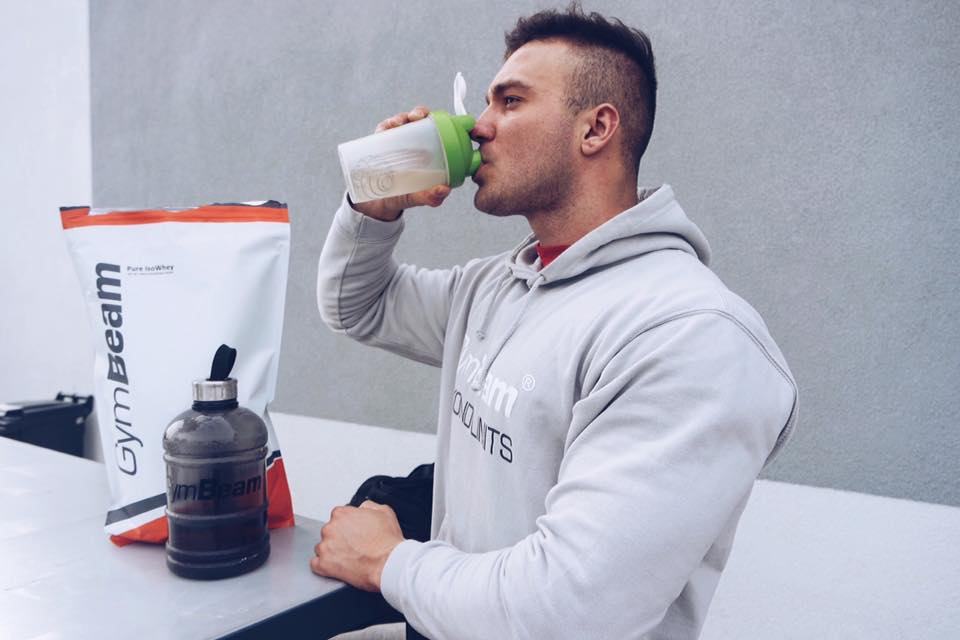
The only case when you can skip carbohydrate consumption after exercising is when you completely removed them from your eating plan, except the small amounts in vegetable and protein powder. In this case, to reduce fat should be your fitness goal.
The good news is that also without carbohydrates, you won’t endanger protein synthesis in your muscles. Even the values of insulin will increase when you regularly consume protein in combination with BCAA which reinforce this effect even more. [9]
That’s why you should follow these tips:
- Immediately after training, consume 40 grams of protein (whey and casein) for maximizing of protein synthesis in the muscles
- Consider consumption of 5 – 10 grams of BCAA after exercising for more effective protein synthesis and increase of insuline level. This is extremely important if you are in phase of diet without carbohydrates.
- If you consume carbohydrates, reach for 20 – 60 grams of dextrose and maltodextrin in dependence upon your body weight, goals, intensity and training time. If this high dose of highly glycemic carbohydrates keeps you in lethargy, try smaller doses (15 – 30 grams) of highly glycemic sugars and add the same dose of low glycemic sugars, for instance from fruit, oat mash or sweet potatoes.
- At phases of diet when you are avoiding all the carbohydrates, consume 40 grams of protein and 5 – 10 grams of BCAA. This will keep you anabolic despite the non sufficient amount of carbohydrates.

What are your experiences with carbohydrates after training? Do you supply them or you avoid them? Share your opinions with us in the comments and add the meals which supply you with energy after training. In case you like the article, support it by sharing.
[1] Robergs, R., Pearson, D., Costill, D., & Fink, W. - Muscle glycogenolysis during differing intensities of weight-resistance exercise. – https://pubmed.ncbi.nlm.nih.gov/2055849/
[2] Essen-Gustavsson, B. and Tesch, P. - Glycogen and triglyceride utilization in relation to muscle metabolic characteristics in men performing heavy-resistance exercise. – https://pubmed.ncbi.nlm.nih.gov/2289498/
[3] Tesch, P., et al. - Muscle metabolism during intense, heavy- resistance exercise. – https://pubmed.ncbi.nlm.nih.gov/3758035/
[4] Ivy, J. - Glycogen resynthesis after exercise: effect of carbohydrate intake. – https://pubmed.ncbi.nlm.nih.gov/9694422/
[5] Staples, A. W., et al. - Carbohydrate does not augment exercise-induced protein accretion versus protein alone. – https://pubmed.ncbi.nlm.nih.gov/21131864/
[6] Koopman, R., et al. - Coingestion of carbohydrate with protein does not further augment postexercise muscle protein synthesis. – https://pubmed.ncbi.nlm.nih.gov/17609259/
[7] Casagrande Figueiredo, V. and Cameron-Smith, D. - Is carbohydrate needed to further stimulate muscle protein synthesis/hypertrophy following resistance exercise? – https://jissn.biomedcentral.com/articles/10.1186/1550-2783-10-42
[8] Caronia, L. M., et al. - Abrupt decrease in serum testosterone levels after an oral glucose load in men: Implications for screening for hypogonadism. – https://pubmed.ncbi.nlm.nih.gov/22804876/
[9] Jim Stoppani - The benefits of post-workout carbohydrates – https://www.bodybuilding.com/content/the-benefits-of-post-workout-carbohydrates.html
[10] Mike Russel - Carbs: Whe, how many, and what kind – https://www.t-nation.com/diet-fat-loss/carbs-when-how-many-and-what-kind
[11] Arlene Semeco - Post-Workout Nutrition: what to eat after a workout – https://www.healthline.com/nutrition/eat-after-workout
[12] Oug Dupont - Carbs and protein: Do we need both after a workout? – https://muscleevo.net/carbs-after-workout/
[13] Jim Brewster - Post workout Carbohydrates – https://www.bodybuilding.com/content/post-workout-carbs.html

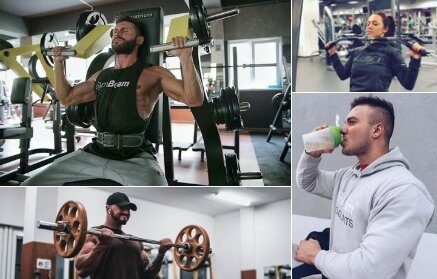
Add a comment